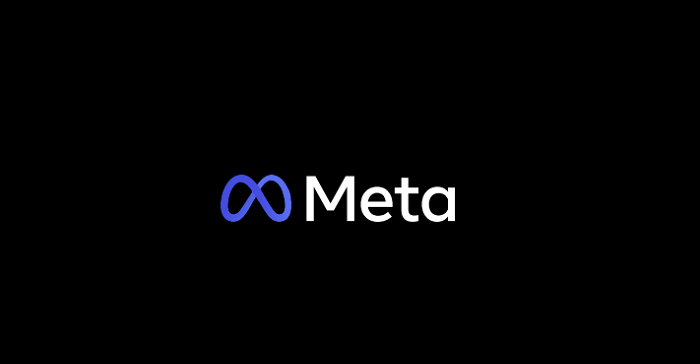SOCIAL
Meta Launches New Legal Proceedings Against Data Scraping, Helping to Establish Precedent Around Misuse

Meta has launched two new legal actions against data scraping sites, which have extracted user data from both Instagram and Facebook for unauthorized use, while it’s also seen a new victory in its battle against platform misuse, with a court ruling in its favor in another case related to clone sites.
First off, on its new actions – Meta has launched legal proceedings against two companies that offer data scraping services, which illegally use people’s uploaded info for unintended purpose.
As explained by Meta:
“The first action is against a company called Octopus, a US subsidiary of a Chinese national high-tech enterprise that claims to have over one million customers. Octopus offers scraping services and access to software that customers can use to scrape any website. For a fee, Octopus customers can launch scraping attacks from its cloud-based platform or hire Octopus to scrape websites directly. Octopus offers to scrape data from Amazon, eBay, Twitter, Yelp, Google, Target, Walmart, Indeed, LinkedIn, Facebook and Instagram.”
Meta says that Octopus’ system is able to extract data about people’s Facebook Friends ‘such as email address, phone number, gender and date of birth, as well as Instagram followers and engagement information, such as name, user profile URL, location and number of likes and comments per post’.
That’s information that users never intended to be utilized in this way, and Meta’s looking to establish clearer legal standing on this type of misuse.
The second company that Meta has launched legal action against is managed by a single operator in Turkey, and has been using automated Instagram accounts to scrape data from the profiles of over 350,000 Instagram users.
“These profiles were viewable to logged-in Instagram users. The Defendant published the scraped data on his own websites or “clone sites.” A clone site is a website that copies and displays Instagram profiles, posts and other information without authorization.”
Both seem like fairly clear-cut violations of Meta’s terms of service, but the legal technicalities of online data scraping are not so definitive, with LinkedIn currently engaged in a years-long battle over a similar data-scraping case, in which users’ publicly available LinkedIn info is being used to power an external employee database and recruitment site.
In the most recent finding in this case, the Ninth Circuit of Appeals ruled that scraping data that’s publicly accessible on the internet isn’t in violation of the Computer Fraud and Abuse Act, despite users not explicitly providing consent for their information to be utilized by third-party providers in this way.
That case will no doubt also be used in the defense against Meta’s latest legal actions – but as Meta outlines, there is a variance here in that the information gathered by these tools is not publicly accessible, as such, which is part of the reason why Meta has gradually locked down Facebook and Instagram data more and more over the years, giving the company more definitive legal grounding in any such misuse.
That could lead to a new legal precedent for such, which may not necessarily help in LinkedIn’s case – but then again, LinkedIn has also been moving to lock down more of its user data to combat the same, which could eventually see any ruling apply to all such cases.
Either way, the misuse of user data in this way is clearly a violation of privacy, as it’s taking people’s personal info without consent. One way or another, it seems that the laws around such need to be updated – and maybe, these new cases from Meta can advance the argument in this respect.
Which is what Meta’s been trying to do with its various legal cases against platform misuse. And recently, it had a victory, with a court ruling that another operator that had been scraping Instagram user data to fuel clone sites was guilty of misuse.
As per Meta:
“In 2020, we filed an action against a defendant scraping people’s publicly-visible information from Instagram in order to create a network of clone sites. This was a violation of our Terms of Service and we filed a lawsuit in order to protect our users. The Court recently issued a final judgment in our favor and found Defendant liable for scraping data from Instagram users and republishing it on his clones sites. The Defendant was ordered by the Court to pay over $200,000 and is banned from using Facebook or Instagram.”
Each ruling in Meta’s favor helps to establish clearer precedent, and as it continues to launch new legal proceedings in order to reiterate the significance of data scraping and misuse, that, ideally, will further build Meta’s broader case load to solidify legal standing.
Which will see more of this type of activity outlawed and penalized, and will ultimately disincentive fraud in the space. It takes time, as each case needs to go through the legal process (as per this recent ruling), but Meta continues to establish stronger foundations for future cases with every step.
Which is another way to evolve the laws around such, embedding rulings by proxy, which will help to address such as clear legal violations in future.
There’s a way to go, on several fronts, but Meta’s legal procedures help to build the foundations of law around these evolving forms of data misuse.
SOCIAL
Snapchat Explores New Messaging Retention Feature: A Game-Changer or Risky Move?

In a recent announcement, Snapchat revealed a groundbreaking update that challenges its traditional design ethos. The platform is experimenting with an option that allows users to defy the 24-hour auto-delete rule, a feature synonymous with Snapchat’s ephemeral messaging model.
The proposed change aims to introduce a “Never delete” option in messaging retention settings, aligning Snapchat more closely with conventional messaging apps. While this move may blur Snapchat’s distinctive selling point, Snap appears convinced of its necessity.
According to Snap, the decision stems from user feedback and a commitment to innovation based on user needs. The company aims to provide greater flexibility and control over conversations, catering to the preferences of its community.
Currently undergoing trials in select markets, the new feature empowers users to adjust retention settings on a conversation-by-conversation basis. Flexibility remains paramount, with participants able to modify settings within chats and receive in-chat notifications to ensure transparency.
Snapchat underscores that the default auto-delete feature will persist, reinforcing its design philosophy centered on ephemerality. However, with the app gaining traction as a primary messaging platform, the option offers users a means to preserve longer chat histories.
The update marks a pivotal moment for Snapchat, renowned for its disappearing message premise, especially popular among younger demographics. Retaining this focus has been pivotal to Snapchat’s identity, but the shift suggests a broader strategy aimed at diversifying its user base.
This strategy may appeal particularly to older demographics, potentially extending Snapchat’s relevance as users age. By emulating features of conventional messaging platforms, Snapchat seeks to enhance its appeal and broaden its reach.
Yet, the introduction of message retention poses questions about Snapchat’s uniqueness. While addressing user demands, the risk of diluting Snapchat’s distinctiveness looms large.
As Snapchat ventures into uncharted territory, the outcome of this experiment remains uncertain. Will message retention propel Snapchat to new heights, or will it compromise the platform’s uniqueness?
Only time will tell.
SOCIAL
Catering to specific audience boosts your business, says accountant turned coach

While it is tempting to try to appeal to a broad audience, the founder of alcohol-free coaching service Just the Tonic, Sandra Parker, believes the best thing you can do for your business is focus on your niche. Here’s how she did just that.
When running a business, reaching out to as many clients as possible can be tempting. But it also risks making your marketing “too generic,” warns Sandra Parker, the founder of Just The Tonic Coaching.
“From the very start of my business, I knew exactly who I could help and who I couldn’t,” Parker told My Biggest Lessons.
Parker struggled with alcohol dependence as a young professional. Today, her business targets high-achieving individuals who face challenges similar to those she had early in her career.
“I understand their frustrations, I understand their fears, and I understand their coping mechanisms and the stories they’re telling themselves,” Parker said. “Because of that, I’m able to market very effectively, to speak in a language that they understand, and am able to reach them.”Â
“I believe that it’s really important that you know exactly who your customer or your client is, and you target them, and you resist the temptation to make your marketing too generic to try and reach everyone,” she explained.
“If you speak specifically to your target clients, you will reach them, and I believe that’s the way that you’re going to be more successful.
Watch the video for more of Sandra Parker’s biggest lessons.
SOCIAL
Instagram Tests Live-Stream Games to Enhance Engagement

Instagram’s testing out some new options to help spice up your live-streams in the app, with some live broadcasters now able to select a game that they can play with viewers in-stream.
As you can see in these example screens, posted by Ahmed Ghanem, some creators now have the option to play either “This or That”, a question and answer prompt that you can share with your viewers, or “Trivia”, to generate more engagement within your IG live-streams.
That could be a simple way to spark more conversation and interaction, which could then lead into further engagement opportunities from your live audience.
Meta’s been exploring more ways to make live-streaming a bigger consideration for IG creators, with a view to live-streams potentially catching on with more users.
That includes the gradual expansion of its “Stars” live-stream donation program, giving more creators in more regions a means to accept donations from live-stream viewers, while back in December, Instagram also added some new options to make it easier to go live using third-party tools via desktop PCs.
Live streaming has been a major shift in China, where shopping live-streams, in particular, have led to massive opportunities for streaming platforms. They haven’t caught on in the same way in Western regions, but as TikTok and YouTube look to push live-stream adoption, there is still a chance that they will become a much bigger element in future.
Which is why IG is also trying to stay in touch, and add more ways for its creators to engage via streams. Live-stream games is another element within this, which could make this a better community-building, and potentially sales-driving option.
We’ve asked Instagram for more information on this test, and we’ll update this post if/when we hear back.
-

 MARKETING7 days ago
MARKETING7 days agoRoundel Media Studio: What to Expect From Target’s New Self-Service Platform
-

 SEO6 days ago
SEO6 days agoGoogle Limits News Links In California Over Proposed ‘Link Tax’ Law
-
SEARCHENGINES6 days ago
Daily Search Forum Recap: April 12, 2024
-

 SEARCHENGINES5 days ago
SEARCHENGINES5 days agoGoogle Core Update Volatility, Helpful Content Update Gone, Dangerous Google Search Results & Google Ads Confusion
-

 SEO5 days ago
SEO5 days ago10 Paid Search & PPC Planning Best Practices
-

 SEO7 days ago
SEO7 days agoGoogle Unplugs “Notes on Search” Experiment
-

 MARKETING6 days ago
MARKETING6 days ago2 Ways to Take Back the Power in Your Business: Part 2
-

 MARKETING4 days ago
MARKETING4 days ago5 Psychological Tactics to Write Better Emails















You must be logged in to post a comment Login